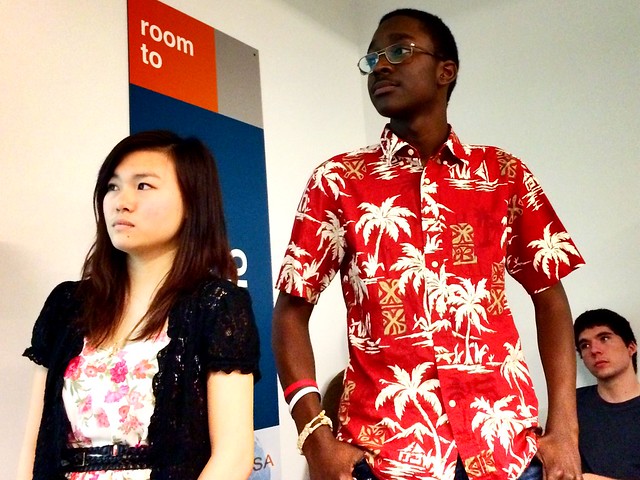![]() For the third annual National Day of Civic Hacking, Chicago will be playing host to multiple events. We’ve broken down the current events and we’ll be giving more updates as we get closer to the event.
For the third annual National Day of Civic Hacking, Chicago will be playing host to multiple events. We’ve broken down the current events and we’ll be giving more updates as we get closer to the event.
CitySDK Launch at Chi Hack Night
Hosted by Chi Hack Night – Braintree 6/2 – 6:00pm
The Census Bureau has developed an open data software development kit (SDK) to enable a community, public, or private sector individuals and organizations to more easily extract value from Census data through user-friendly Application Program Interfaces (APIs). Through the SDK we are aiming to provide a user friendly “Toolbox” for civic hackers to connect local and national public data in order to bring forth innovative solutions for our communities. This national effort is being done to time with National Day of Civic Hacking.
The Census Bureau plans to launch the CitySDK on June 1st and present the CitySDK at the Chi Hack Night on June 2nd.
The Chi Hack Night (formerly known as the Open Gov Hack Night) is a free, weekly event in Chicago to build, share and learn about civic tech, or tools to create, support, or serve public good. It’s one of the largest weekly gatherings of civic innovators and takes place every Tuesday on the 8th floor of Merchandise Mart.
Urban Sustainability Apps Competition
Hosted by the Center for Neighborhood Technology – 6/5
The Center for Neighborhood Technology (CNT) invites you to make Chicago’s neighborhoods smarter, greener, and more affordable at the 4th Annual Urban Sustainability Apps Competition.
Over the course of the event, community activists and app developers will work together to create workable prototypes of apps that make our neighborhoods more sustainable, both environmentally and economically.
We welcome participants from all corners of the city, whether you’re a local activist working to improve your neighborhood or a coding whiz looking to make a difference in the community.
Organize! Civic Tech Leader Training
Hosted by the Smart Chicago Collaborative – Blue1647 – 8:30am 6/6
For National Day of Civic Hacking, Smart Chicago will be hosting Civic Tech Leader Training to help leverage the power of technology to organize in their neighborhoods. The event will be held at Blue1647 on June 6th, 2015 and is designed to help train new civic tech leaders. We’ll be providing resource and training guides before the event.
Training will include FOIA training by the Better Government Association, community organizing training from the Southwest Organizing Project, Microsoft Excel training from Microsoft’s Adam Hecktman, data portal training by Josh Kalov, and more.
Adler National Day of Civic Hacking
Hosted by the Adler Planetarium – 9:00am 6/6 – 6/7
All Hack Days need problems to solve and those problems need domain experts – that’s where you come it! Civic Hack Day, as part of the National Day of Civic Hacking, focuses on issues to improve our communities. As the problem owner you’ll give a two minute pitch at the beginning of Civic Hack Day to attract hackers interested in creating a technology-based solution to your problem.
Need some inspiration? Check out some of the projects from Civic Hack Day 2014. We also encourage you to share your ideas before the event on the Civic Hack Day Ideas Hackpad.
Civic Hack Day will kick off bright and early at 9:00 am on Saturday June 6th. and will finish at 12:00pm on Sunday June 7th. Problem Owners and Hackers are invited to spend the night at the Adler to hack the night away. You’ll be provided with plenty of food and caffeine to keep the momentum going! If you prefer sleep to hacking you can always go home and return on Sunday morning for the event wrap-up, project demos, and prizes.
Lexhacks
Hosted by Michigan State University and OpenLegal – We Work Chicago – 6/6 – 6/7
 At
At  Once again, Smart Chicago Collaborative will be a national partner for National Day of Civic Hacking providing training content as well as running our own National Day of Civic Hacking events here in Chicago.
Once again, Smart Chicago Collaborative will be a national partner for National Day of Civic Hacking providing training content as well as running our own National Day of Civic Hacking events here in Chicago.
